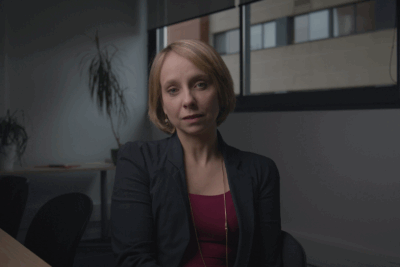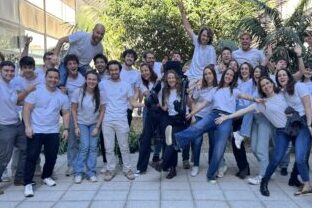24th February 2023
- The F3T – Framework for Fast Fast-Track of Digital Health Solutions project, driven by EIT Health Spain, will address the main challenges to accelerate the adoption of digital health applications: clinical validation, regulatory process, financing and procurement models, among others.
- The project’s Core Group, formed by fourteen experts belonging to public and private organisations at a national and regional level, will lead the initiative coordinated by EIT Health Spain
- The project aims to establish a roadmap and recommend to decision-makers feasible solutions that accelerate the arrival of the highest value digital health applications to the patient and the market while reducing barriers to innovators
- Over the coming months, stakeholders from across the health innovation value chain will be invited to participate in consultations and workshops.
EIT Health Spain has launched in Barcelona the F3T – Framework for Fast Fast-Track of Digital Health Solutions project.
The initiative brings together experts and players in the health innovation value chain to define a framework to speed up the adoption of digital health applications in Spain, with implementable recommendations for decision-makers. The project, at the same time, aims to ease the difficult path for innovators and entrepreneurs.
The ultimate goal is to reach a minimum consensus for harmonisation in the processes of evaluation, adoption and financing of digital health applications in Spain, as well as to facilitate the scalability of solutions.
The F3T is the result of consultations and meetings that EIT Health held in 2022 which are included in the report ‘Accelerating the adoption of digital health applications in Spain’. The report identifies the obstacles in the way of innovation in digital health apps and the areas where is key to intervene as a priority.
“In the future, high-quality and clinically validated mobile health apps will help to fill some gaps in healthcare, improve or even replace some conventional treatments, and help make healthcare systems more resilient and financially viable. “But if we are not able to ensure that the best innovations in this field reach the patient and the system quickly, equitably and safely, we will be missing the opportunity provided by European and national transformation funds and plans,” says Izabel Alfany, Director of Operations at EIT Health Spain.
Clinical validation: a challenge for innovators
Getting evidence of the efficacy or benefits of these digital solutions through quality clinical studies can be a challenge for innovators. “Strong evidence is essential if digital applications are to be prescribed and funded. And at the same time, it is critical to have the right regulatory conditions in place so that this requirement for clinical evidence does not kill innovation,” says Alfany.
In this sense, the Core Group aspires to a common minimum harmonisation framework for all Autonomous Regions and healthcare organisations, avoiding ineffective repetition of pilots, which reduces the scalability of applications and equity in patient access to innovation.
Germany took the lead by launching a novel process for the fast-track approval of digital, prescribable and reimbursable apps (popularly known as DiGA fast-track). France, Belgium and Luxembourg are also moving in this direction.
“Spain cannot be left behind and needs a consensus of all the stakeholders so that the solutions that bring value for patients reach them as soon as possible and in a safe way. As the main driving force in the health innovation ecosystem, at EIT Health we believe we have the responsibility and the capacity to facilitate this process,” said Ángeles Barrios, Public Affairs Lead at EIT Health Spain, who is responsible for coordinating the project.
Experts and organisations from the public and private sectors
The F3T Core Group is composed of representatives from the health administration and institutions, hospitals, evaluation agencies, industry, and start-ups in the health sector, invited by EIT Health Spain, which acts as facilitator and coordinator of the initiative to bring together the health innovation ecosystem.
The experts who belong to this group are:
- Enrique Arjonilla – Head of the omnichannel ICT Area. Andalusian Health Service.
- Eva Aurín – eHealth Manager. Telefónica.
- Lluís Blanch – Coordinator. ITEMAS-ISCIII
- Robert Fabregat – CEO. Biocat
- María José Faraldo – Head of Service. Avalia-t
- Francesc Iglesias – Director of the Innovation Office and Deputy Director. Catalan Institute of Health
- Ramón Maspons – Chief Innovation Officer. Agency for Health Quality and Assessment of Catalonia (AQuAS)
- Ana Miquel – Head of Innovation and International Projects. Ministry of Health of Madrid
- Aurora Notario – Director of Market Access. InsulCloud
- Patricia Pesudo – Directora of the Oficina Més Sant Pau (strategic impulse and innovation areas)
- Jaume Ribera – Director IESE – CRHIM (Center for Research in Healthcare Innovation Management)
- Laura Sampietro – Deputy Director of Innovation. Hospital Clinic Barcelona
- Elena Torrente – Director DKV InnoLab for Digital Health
- César Velasco – Director of Innovation and Digital Strategy, AstraZeneca España
Jordi Surrallés, Director of the Institut de Recerca of the Hospital de la Santa Creu i Sant Pau, hosted the meeting, which was held at the Sant Pau Art Nouveau Site.
The project will focus on four areas: value-based assessment criteria, design of the regulatory process (fast track), procurement and financing models and, the development of tools or processes to support innovators and entrepreneurs in the phases before CE certification, providing guidance on clinical needs, value-based outcomes and the regulatory pathway itself.
Between March and May, the Core Group will extend participation to other relevant stakeholders and experts. Under the coordination of EIT Health, they will work, through consultations and workshops, on developing proposals, identifying bottlenecks, and devising implementable solutions.
“At EIT Health we want to facilitate the work of key stakeholders to develop a feasible process in Spain, which will enable the difficult balance between the reality and regulations of Spanish healthcare systems, the complex nature of digital solutions, patient protection and needs, and the success of innovators,” explains Cristina Bescós, Managing Director of EIT Health Spain and Director of Innovation for the organisation at European level. “We want the conclusions of this project to have the greatest possible legitimacy by bringing experts, stakeholders and decision-makers to the table. Only with a collaborative, inclusive approach and with the generosity of all, we will be able to make progress in an area as in need of consensus and progress as the adoption of digital health solutions for unmet health needs”.
EIT Health and the EDIT-B consortium transform bipolar disorder diagnosis with groundbreaking blood test

Discover this life-changing project today.
Three EIT Health innovators nominated for EIT Awards

Meet our three EIT Award nominees.
Hospital Clínic study reinforces patient participation as key to digital health innovation

New work published in Journal of Medical Internet Research.
